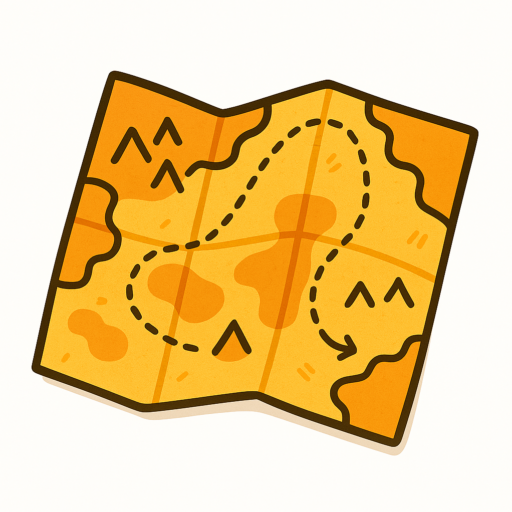*This article is part of the TOK Roadmap — a visual, all-in-one guide I created to help you ace Theory of Knowledge. [View the full roadmap here.]
Don’t know where to start for your TOK essay? I cover all TOK concepts you need to know without all the unnecessary details.
In this post, I explain
- Areas of Knowledge (AoK)
- Disciplines within AoK
- Common TOK terms in each AoK
TOK concepts you need: Areas of Knowledge
Areas of Knowledge (AoKs) are subjects you are already studying in IB: Mathematics, Human Sciences, Natural Sciences, History, and the Arts.
In the TOK Essay, you answer a Knowledge Question* by finding examples that fit in two of these areas. If Math is one of them, you’d need to find a specific example in math that answers the question.
*you can also refresh your memory of what Knowledge Questions (KQs) are here. If you’re in a hurry, just know that a KQ is a question about knowledge itself, not a question asking for factual knowledge.
To be honest, this is all I knew going into the essay, and it was fine.
You really don’t need to study any specific thing about AoKs to prepare for the essay, but to make yourself comfortable talking about AoKs you can choose to do two things:
- Get familiar with different disciplines within each AoK (i.e., Arts isn’t just “art”, right? It includes music, theater, literature, modern art, renaissance art, and more. Being aware of these subfields can help you when it’s time to choose examples.)
- Look at some sample Knowledge Questions and TOK vocabulary used in each AoK (you’ll find these in the IB TOK subject guide.)
Skim the following sections. Don’t try to memorize them.

Disciplines within AoKs
Mathematics is… math. It includes
- pure mathematics (e.g. algebra, calculus, number theory)—study of math for its own sake.
- applied mathematics (e.g. statistics, modeling)—study of math to solve real-world problems, like weather forecast, YouTube recommendations, developing vaccines, predicting Covid-19 cases, etc.
- These are really broad categories, so you can go deeper and find hundreds of sub-fields—game theory, discrete maths…
Human Sciences study humans, behaviors and interactions of humans.
- Psychology—study of human mind and behaviors
- Sociology—study of interactions between humans
- Anthropology—study of human cultures and societies, past and present
- Economics—study of how humans consume, exchange, and produce goods and services
- Political Science—study of how humans govern themselves, study of power
- And more…
Natural Sciences study our physical world— physics, chemistry, biology, astronomy, and earth sciences, among others. Recently, environmental sciences is getting a lot of attention—this is interdisciplinary, meaning it involves both natural sciences and human sciences.
History is a study of the past. You can study history through many different lenses (political, military, economic…). You can also think about different approaches to discovering and documenting history (primary and secondary sources, archaeological evidence like fossils, ruins, bones, and oral history like stories passed down through generations…).
Arts include Visual Arts (e.g. painting, sculpture, photography), Literature, Music, Theatre, Dance, and Film. There are so many distinct subfields within each branch, which I think makes this AoK particularly interesting.
Common TOK buzzwords in each AoK
Ok, now let’s see examples of TOK vocab we use to ask knowledge questions in these AoKs (from the IBO TOK guide)
Mathematics
- “certainty”—at what point are mathematicians certain about their findings?
- “real-world” vs “abstract”–do real-world problems and abstract problems in math have equal value?
- “mathematical community”—Math is highly collaborative. How do mathematicians work together?
- “axioms”, “mathematical reasoning”—what makes reasoning in math special?
Human Sciences
- “models”—what kinds of models do human scientists create to explain our behaviors?
- “prediction” and “unpredictability”—humans are often unpredictable, right? It’s difficult to make models that attempt to predict our behaviors
- “beliefs” “interests”—scientists themselves are humans, so how do their beliefs and interests affect their research on humans?
- “ethical responsibility”—researching humans is a lot more complicated than researching… plants. What ethical guidelines do they follow?
Natural Sciences
- “scientific method”—What’s so special about how scientists conduct research? Any difference from human scientists?
- “unknowable”—are some things just impossible to figure out?
- “assumptions”—does scientific research involve making any assumptions?
- “prediction”—is prediction the primary goal of science?
- “paradigm shift”—how does science evolve?
- “human rights”—how do scientists and ‘we’ as humanity balance scientific progress and ethical boundaries?
History
- “Certainty”—can we ever be certain about the past?
- “Fact”—what counts as a fact in history?
- “Subjectivity”—can history ever be truly objective?
- “Reliability”—how do we decide what to trust in history?
- “Bias”—how does bias affect us and historians?
- “Historical perspective”, “Cultural perspective”, “National perspective”—through what lens do we view and document history?
- “Methodology of history”—what’s different about how historians conduct research?
Arts
- “previous knowledge”—does new knowledge in art always build on what is already known?
- “social, cultural, historical context”—does knowing more about art always lead to better understanding of artworks?
- “interpretation”—how do our values and beliefs affect how we interpret artworks?
- “expert”—what makes an expert in art, an expert?
- “standards”—are there standards for “good art”?
Source: IBO
Notice how there’s a lot of overlap between AoKs (like “certainty” and “perspective”), but each of them approach these terms differently. To prepare for the TOK Essay, it’s enough to explore them in class or by yourself.
Leave a Reply